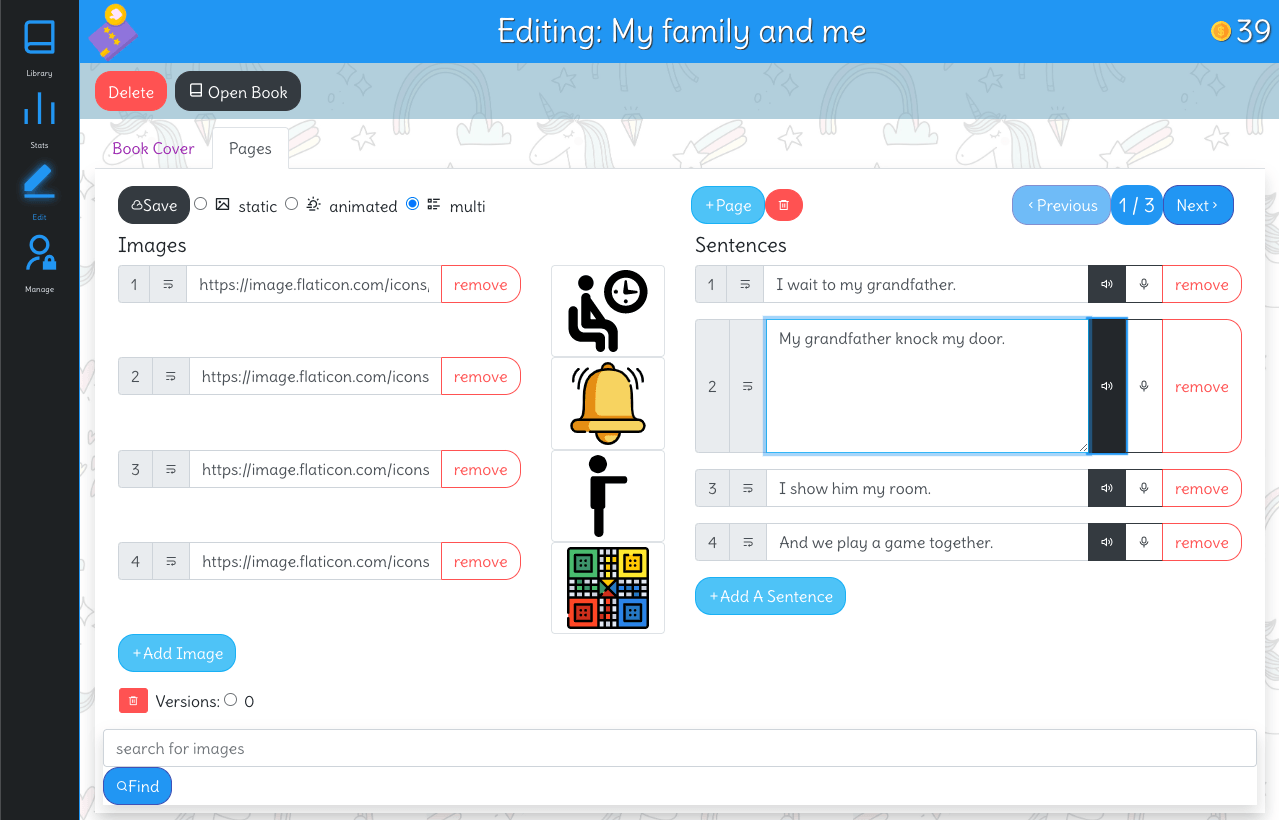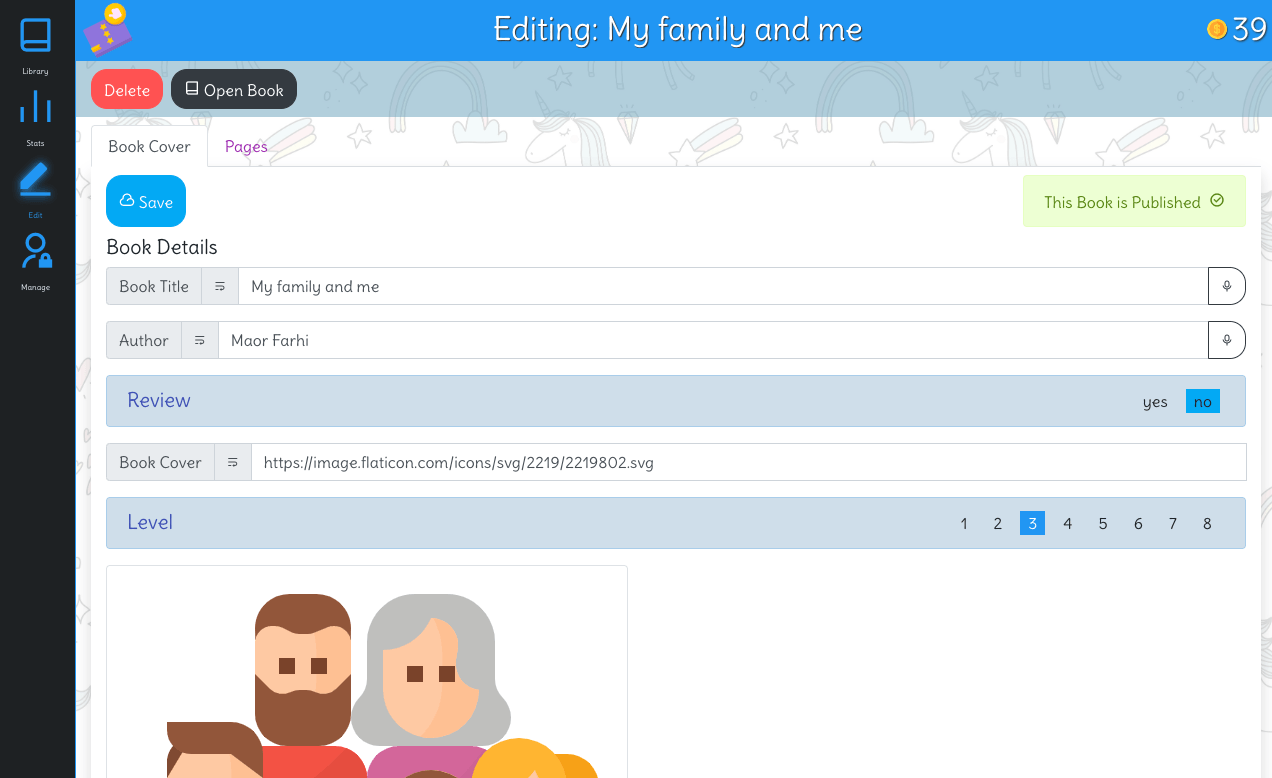 rizens
rizens
When i’m coding forms with react, I prefer using react-hook-form. I find it simple but yet powerful enough. In of the projects I was working on, the initial form’s data is pulled from a redux store. The requirement for this project is to push the form’s input back to the store - that means, submitting the form results in updating the store.
Some of the data in the store is not reflected in the form, but rather is updated directly with the reducer’s action functions. In addition to that, data in the store may be updated from other sources that are not part of the form.
That means the form’s values need to be updated with the latest data from the store, so updates on the data source should go both ways:
If not done right, these updates may go into an infinite loop which would crush the browser. I have come up with a strategy to make sure this would not happen.
ReadM includes a book editor and front page editor sections which allow an Editor to create books. This section is implemented with useForm and Redux Toolkit.
Book Editor

Front Page Editor

Next, we’re going to create our own custom hook which will use useForm and is responsible for updating the store or the form when either is changing - without going into infinite loop.
I want this custom form hook to be responsible for any data updates going both ways, and that’s why i prefer to compose the logics inside this custom hook. I wrote before on improving your developer experience custom hooks.
This hook creates an instance of useForm and invokes 2 additional hooks which are responsible for updating the store and the form when the data changes in one of them. These hooks are actually standalone hooks and require a the useForm api to perform the update.
export function useBookForm(book: IBook) {
const bookActions = useBookActions(book.id)
const useFormApi = useForm<IBook>({
defaultValues: book
})
const { handleSubmit } = useFormApi
/* Data source updaters */
// update the FORM => WHY? change comes from "book" prop
useFormUpdater(book, useFormApi.setValue)
// update the STORE => WHY? change comes from the "form"
useBookUpdater(useFormApi, bookActions.updateBook)
const onSubmitHandler = useCallback(
() => handleSubmit(bookActions.updateBook),
[handleSubmit, bookActions.updateBook]
)
return {
onSubmitHandler,
useFormApi
}
}The useFormUpdater hook is using the excellent useDeepCompareEffect hook which performs a deep equality comparison of the next and previous book object (a complex json object).
When change is detected, the useForm.setValue() is used to update the form. according to the [use form docs], setValue is more performant then reset() by avoiding “unnecessary re-rerenders”. The shouldDirty property is set to false because in this case, I don’t want the field to be set as if the change was coming from the form.
import { useDeepCompareEffect } from "react-use"
const useFormUpdater = (book: IBook, setValueToKey) => {
useDeepCompareEffect(() => {
const setValueToKey = ([key, value]: [string, any]) => {
setValue(key, value, { shouldDirty: false })
}
Object.entries(book).forEach(setValueToKey)
}, [book, setValue])
}Next, this custom hook is responsible for watching the form’s changes and updating redux. A naive approach would just invoke the redux action update function with the entire form’s data - this would be prawn to that infinite re-rendering cycle I mentioned at the beginning of this article.
The solution for that is to update the store with the changes only. That means creating a book object with the properties that have changed.
This hook is using the useDeepCompareEffect to compare the entire book’s form changes. However, in this case, i’m creating the set of changes by filtering the fields that have changed with the useFormApi.formState.dirtyFields. This is a key/value object (name of field, boolean value for “changed” status) that includes the fields that have changed only.
const useBookUpdater = (useFormApi, onChange) => {
const bookChanges: Partial<IBook> = useFormApi.watch()
const dirtyFields = useFormApi.formState.dirtyFields
useDeepCompareEffect(() => {
if (!isRecordEmpty(bookChanges)) {
const book = createBookFromDirtyFields(dirtyFields, bookChanges)
onChange(book)
}
}, [bookChanges])
}And that’s what it takes to add redux toolkit as a caching layer for react-hook-form.
The usage of the custom useBookForm hook is simple and follows the useForm api. Since it simply expose the entire form’s api, we can use any of the exported functions of useForm and don’t have to worry about updating the store for each field.
import { InputField, Sentences } from "@readm/components"
export function Editor({ book }) {
const { onSubmitHandler, useFormApi } = useBookForm(book)
return (
<form onSubmit={onSubmitHandler}>
<InputField control={useFormApi.control} name="title" />
<Sentences api={useFormApi} name="sentences" />
</form>
)
}This is just a way to achieve that and a solution I have came up with to solve that form hook and redux integration challenge.
Thanks for reading.